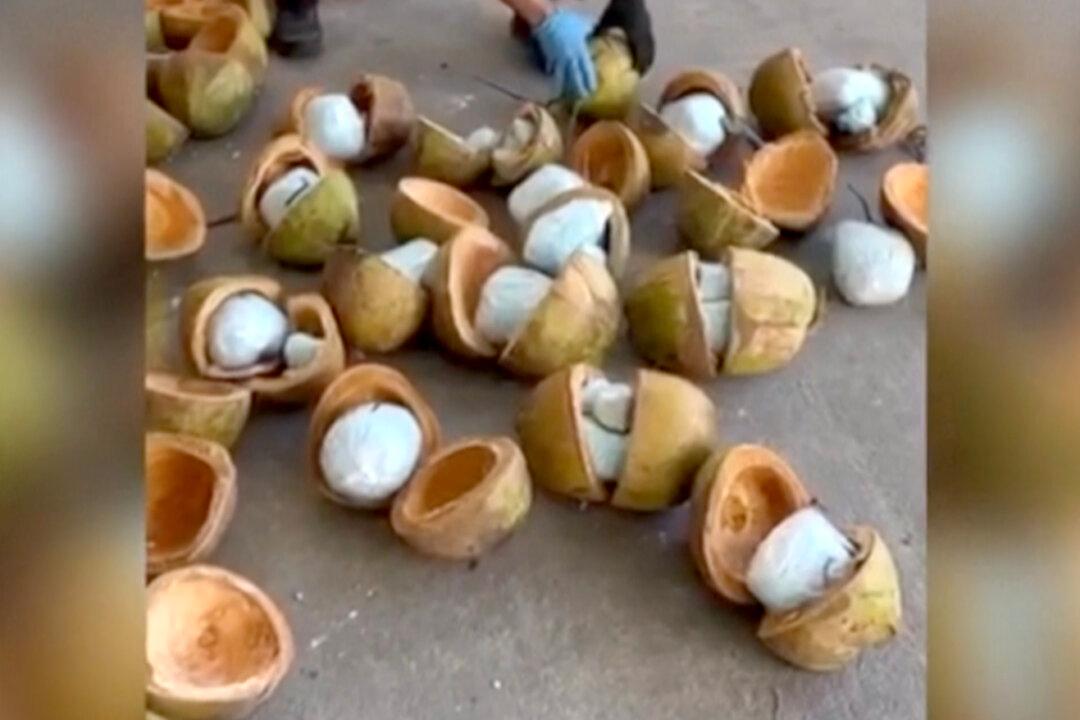Commentary
Americans for many years have been inflamed about the violent crime that accompanies the millions of illegal immigrants who become permanent U.S. residents via our unsecured southern border. Take, for instance, the four young men bused into New York City from Texas who, a few months ago, drove to Long Island and allegedly stole close to $12,500 worth of merchandise from a Macy’s. All were freed to continue to live illegally within the United States; two were released without bail, while the other two posted bonds for modest amounts.
Several aspects of the radicalism that now dominates the Democratic Party are at play here: the de facto decriminalization of illegal entry into the United States, tolerance to the point of implicit encouragement of shoplifting and rioting since the death while in police custody of George Floyd in 2020, and numerous George Soros-financed “soft on crime” prosecutors who squelch the requirement of cash bail and unleash violent offenders back onto the street soon after their arrest, rendering police impotent and humiliated.
But it goes far beyond a mere domestic political agenda of chronic urban lawlessness, the import of dependable votes for Democrats, and a perpetual racial discord begging the heavy hand of big government. It should shock and alarm Americans to recognize that two enemies of this country, as well as the ordered liberty, free market system, and rule of law on which its way of life is based, are directly involved in the new epidemic of organized retail crime: the Chinese Communist Party and Mexican drug cartels.
After years of making billions of dollars and killing thousands of Americans through their smuggling of mainland Chinese-made fentanyl across the border, Mexico’s cartels are overseeing what U.S. Immigration and Customs Enforcement (ICE) described more than a year ago (neglecting to identify the foreign entities behind the crime) as “organized theft groups” who “engage in large-scale thefts which rely on teams of ‘boosters’ who steal goods from major retail stores, ‘cleaners’ who disguise the origins of stolen merchandise, ‘fencers’ who resell products through brick-and-mortar fronts and major e-commerce websites, and professional money launderers who funnel illicit profits to criminals orchestrating schemes. In many instances, organized theft groups resort to violence or violent threats against employees of retail companies.”
Long before COVID-19, laboratories in Wuhan in central China were producing most of the fentanyl consumed within the United States. The Drug Enforcement Administration’s (DEA) 2019 National Drug Threat Assessment report states that Asian money-laundering organizations (MLOs) “are working in conjunction with Hispanic DTOs [drug-trafficking organizations] with increasing frequency. ... Various FDs [DEA field divisions] have observed Mexican DTOs increasingly utilizing domestic Asian operatives to facilitate drug money movement across a variety of methods, including TBML [trade-based money laundering], CUBS [Chinese underground banking system], virtual currencies, and even bulk currency storage and shipment.” The cartels are also active in human trafficking and firearm smuggling.
In like fashion, shoplifting rings run by Mexican drug cartels resell stolen goods and use Chinese money launderers to send the money made back to Mexico. The National Retail Federation’s 2022 Retail Security Survey found that “organized retail crime (ORC)” and other forms of external theft cost “$94.5 billion in losses, up from $90.8 billion in 2020” for U.S. retailers. As a direct result, an average family will have to pay about $500 extra every year as retailers raise their prices to compensate for losses from stolen goods.
ICE’s Homeland Security investigations described how professional thieves known as “boosters” “travel in crews throughout the country utilizing aliases, rental vehicles, and tools such as ‘booster bags’ and illegally acquired security keys to steal high-value merchandise.” The booty is then sold cheap to a “fencer” who utilizes e-commerce websites such as eBay and Amazon to pull in an optimum amount of cash.
Prosecutors of Chicago-based Chinese figures working with Mexican cartels on drug money observed in 2021 that “a relatively small network of Chinese money brokers based in Mexico have come to dominate international money-laundering markets.” A particular method used, requiring only hours, was a “mirror swap” involving Chinese businessmen in Mexico and U.S.-based Chinese brokers who transfer Chinese currency between bank accounts in mainland China, with no money wired directly from the United States to China, thus bypassing the U.S. banking system. The cash’s ultimate destination was Mexico.
Clearly, Beijing’s out-of-reach financial system has been making the cartels’ wide-ranging criminality possible, whether it be selling sex slaves, poisoning Americans with fentanyl, or retail theft in this country’s cities. It’s an axis of enemies waging a disguised war against the United States, an onslaught far different from the open warfare of Nazi Germany or the Cold War nuclear threat practiced for decades by the Soviet Union.





